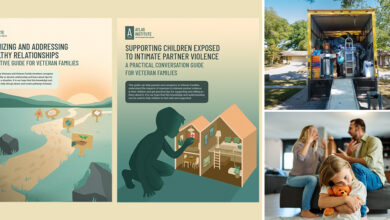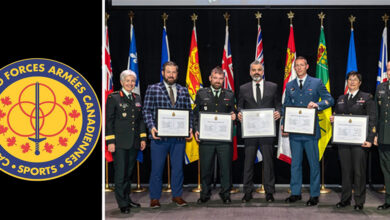Health and Wellness
Mental Illness Health Week: There is no health without mental health
There is no health without mental health, is the theme for Mental Illness Awareness Week (MIAW) this year.
Running the first week in October annually, the week is about engaging people to join the mental health conversation. This year the week runs from October 4 to 10, wrapping up on World Mental Health Day.
MIAW was established in 1992 by the Canadian Psychiatric Association and is now co-ordinated by the Canadian Alliance on Mental Illness and Mental Health.
According to a recent analysis, “failure to perceive need for care is the leading barrier to accessing mental health care.”
The result of the analysis is from Drs. Fikretoglu, Liu, Zamorski, and Jetly of the data from Statistics Canada’s 2002 (CAF and Canadian civilian population studies), 2012 (Canadian civilian population), and 2013 (CAF) mental health surveys. Read more here.
The study shows that Canadians living with varying levels of mental distress struggle to manage symptoms on their own as they are often not aware that they have a health condition for which effective treatments and resources are available.
In 2017, Sajjan and Seamus O’Regan, former minister of veterans affairs, developed the Joint Suicide Prevention Strategy. The Strategy defines the context for action, describes the goals upon which actions are focused, and shows the many programs, projects, and initiatives now underway to help reduce risks, build resilience in our CAF and Veteran communities, and prevent suicide among military members and Veterans.
To mark the day, Harjit S. Sajjan, minister of national defence, and Lawrence MacAulay, minister of veterans affairs and Associate Minister of National Defence stated in a press release, “This week, we mark Mental Illness Awareness Week and the third anniversary of the Joint Suicide Prevention Strategy. This week, we observe an annual national public education campaign to raise awareness and decrease the stigma associated with mental illness.
“We recognize the tremendous sacrifices Canadian Armed Forces members make, and Veterans have made in service to our country. We also thank their families for their continuous support and sacrifice. Our members’ health is our priority, and we are committed to ensuring that our military personnel and those who have served Canada receive the highest standard of health care and support for mental illness.
“The first step to getting help for mental illness is identifying the need. Engaging in Mental Illness Awareness Week will help us all learn more about how to recognize the signs of mental illness in ourselves, or those around us, whether it’s a family member, friend, or a colleague. As well, restrictions in physical, in-person interactions with others during the global COVID-19 pandemic have introduced new challenges for many of those suffering from mental illness, and that is why it is more important than ever to know about the resources available.”
“We all have a role to play in encouraging discussions on this important topic. If you need help, reach out to someone. Please know that it is okay to not be okay. Support is available, and you are not alone. If you think that a colleague, friend, or family member is suffering, ask if they are okay, really okay, and offer your support.”
In 2017, Sajjan and Seamus O’Regan, former minister of veterans affairs, developed the Joint Suicide Prevention Strategy. The Strategy defines the context for action, describes the goals upon which actions are focused, and shows the many programs, projects, and initiatives now underway to help reduce risks, build resilience in our CAF and Veteran communities, and prevent suicide among military members and Veterans.
Vice Chief of the Defence Staff, Lieutenant-General M. N. Rouleau and Deputy Minister of National Defence, Jody Thomas, noted in a statement, “This week, we recognize Mental Illness Awareness Week, an important opportunity to promote dialogue about and reduce the stigma surrounding mental illness. It’s also a chance to highlight resources available for those in need, because mental health issues can come in many forms, and can affect anyone.
“As it has for many Canadians, the global COVID-19 pandemic has been a challenge to which the Defence Team has had to adapt. Defence Team members, as well their families, have had to make significant adjustments to the way they work and live in order to accommodate this new reality.
“Through it all, the health and safety of the Defence Team has always been our priority. We are continuing to provide support and resources during this difficult time and assure that our military members and civilian employees have access to the help they need, when they need it.
“We all have a role to play in encouraging discussions on this important topic. If you need help, reach out to someone. Please know that it is okay to not be okay. Support is available, and you are not alone. If you think that a colleague, friend, or family member is suffering, ask if they are okay, really okay, and offer your support.
“For those currently combating mental illness, do not avoid or delay accessing support services and treatment. If you or someone you know requires emergency mental healthcare, help is immediately available by calling 911.”
Available resources:
-
-
- Canadian Forces Member Assistance Program (24/7) 1-800-268-7708
- Employee Assistance Program (24/7) 1-800-268-7708
- Family Information Line (24/7) 1-800-866-4546 (International 00-800-771-17722)
- Canadian Armed Forces Medical Centres
- Canadian Forces Morale & Welfare Services Directory
- Veteran Affairs Canada Mental Health Website
- Strengthening the Forces Health Promotion Program
-
There are also Canadian Armed Forces programs and services available on the You’re Not Alone web page.
For less urgent needs, help is available to military personnel at the nearest Canadian Armed Forces health clinic. Serving members, Veterans, and civilian employees of the Department of National Defence can call 1-800-268-7708 for the VAC Assistance Service. The services are free of charge and available 24 hours a day, 365 days a year.
VAC has a well-established national network of approximately 12,000 mental health professionals, delivering mental health services to eligible Veterans and serving and released Royal Canadian Mounted Police (RCMP) officers with post-traumatic stress disorder or other mental health conditions. Additional VAC services include a network of 11 operational stress injury clinics across the country.










